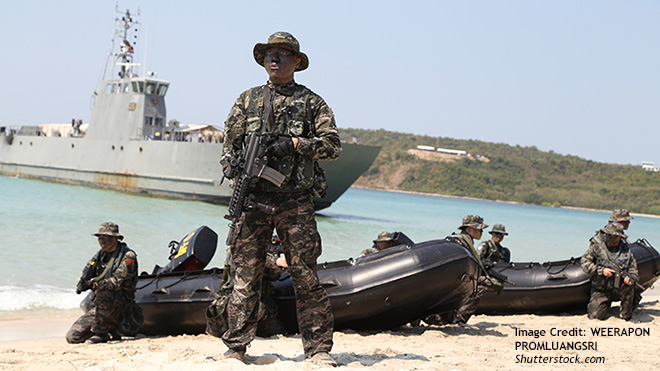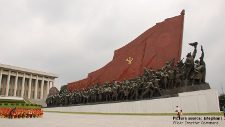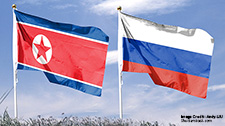‘Strategic Talks’ – A Report by Stockholm Korea Center

Mats Engman, Johanna Miskolczi Persson and Irene Spennacchio
In June, the ISDP Korea Center launched “Strategic Talks,” an online series focusing on developments on the Korean Peninsula and regional and international security. The inaugural session on June 4, 2024, featured Professor Ramon Pacheco-Pardo from King’s College London and Dr. John Nilsson-Wright from the University of Cambridge. Subsequent sessions included talks on June 19 with Mr. Heino Klink, Former Deputy Assistant Secretary of Defense for East Asia, and Mr. Frank Aum, Senior Expert on the Democratic People´s Republic of Korea at the U.S. Institute of Peace, as well as a final talk on June 20 with Lieutenant General (ret.) Chun In-Bum, Distinguished Military Fellow at ISDP, and Dr. Lee Sang Hyun from the Sejong Institute. All three talks were moderated by Maj. Gen. (ret) Mats Engman, Head of the Korea Center at ISDP.
This report summarizes and compares the perspectives from these three talks, aiming to identify commonalities and differences from their insights. Key issues discussed included the evolving Russia-DPRK alliance, marked by a new mutual defense agreement between Vladimir Putin and Kim Jong Un, and its impact on regional stability. The Republic of Korea’s recent National Assembly elections and potential shifts in foreign policy were also examined, including how domestic changes might influence relations with the U.S. and the DPRK. Additionally, the DPRK’s policy shift, abandoning peaceful reunification with the ROK and designating it as an enemy, was highlighted for its potential to escalate tensions.
The discussions further explored the emerging regional security architecture, contrasting alliances like the U.S.-Japan-ROK-Australia bloc with the China-Russia-DPRK-Iran axis. The impact of the Ukraine conflict on East Asian security and the potential ramifications of a possible return of Donald Trump to the U.S. presidency on U.S. policy toward the DPRK were also considered. Notably, the talks took place before Biden’s withdrawal from the 2024 U.S. election and Kamala Harris’ candidacy, suggesting that future changes in direction are possible.
Related Publications
-
Kamala Harris on North Korea: Change or Continuation?
Despite many efforts and different strategies, both previous and current U.S. administrations have been unsuccessful in preventing the Democratic People’s Republic of Korea (DPRK) from developing its nuclear and missile […]
-
Russia-DPRK Partnership: Implications for the West
This issue brief examines the evolving relationship between the DPRK and Russia, particularly since Russia’s invasion of Ukraine in 2022. The partnership has deepened, with North Korea supporting Russia diplomatically […]
-
Anticipating North Korea’s Next Nuclear Test
This issue brief provides a comprehensive analysis of the anticipated technical and strategic objectives behind North Korea’s potential seventh nuclear test, along with an examination of the probable timing for […]
-
The Political Split at the Heart of Taiwan’s Struggle against Foreign Disinformation
Taiwan’s struggle against foreign disinformation and concerns about China’s impact on its 2024 election has received much international attention recently. This issue brief examines the domestic and international politics behind […]
-
What Comes Next for North Korea-Russia Relations?
North Korea and Russia have taken their relations to a new level after the leaders of the two countries held an in-person summit meeting on Wednesday. While Pyongyang and Moscow […]



